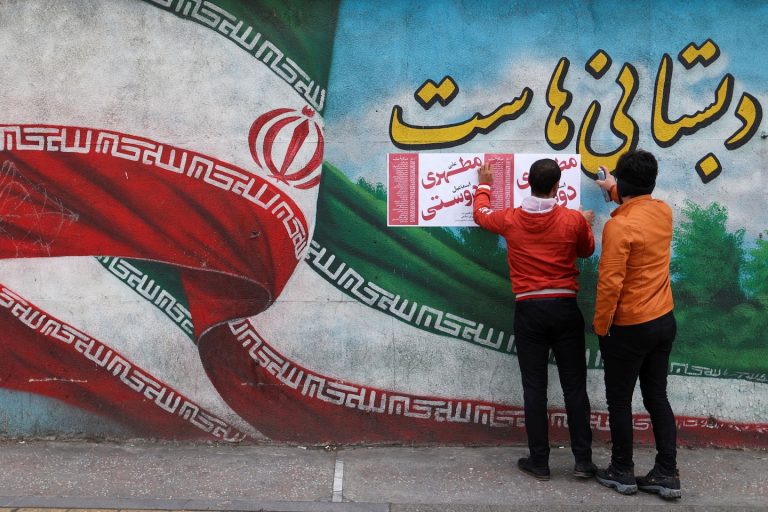Are elections in Iran important?
If low turnout is an indicator of widespread dissatisfaction, the election could offer a glimpse into public opinion at a critical time for the country. Critics of the regime are calling for a boycott of the elections, but Iran's rulers warn that “weak elections” benefit no one.
Ayatollah Ali Khamenei, the Islamic Republic's supreme leader, told a crowd of voters for the first time on Wednesday that “not voting does not lead to any achievements and does not solve the country's problems,” the state-run Islamic Republic News Agency reported.
“If the elections are weak, everyone will be hurt,” he said. He added: “I am not accusing anyone, but I remind everyone that we have to look at the elections from the perspective of our national interests.”
One of the most prominent figures calling for the boycott is imprisoned women’s rights activist Narges Mohammadi, winner of the Nobel Peace Prize in 2023. In a statement posted on social media, Mohammadi described the elections as “fake.” She said the government's “cruel and brutal repression” makes the boycott a political and moral “obligation.”
Why are Iranians boycotting the elections?
Many Iranians are still reeling from the violent government crackdown on protests across the country that began more than a year ago with the death in custody of 22-year-old Mahsa Amini after she was arrested by morality police in September 2022 for allegedly not wearing her hijab. Correctly. More than 500 people were killed and thousands were imprisoned.
Since the protest movement, government crackdowns on freedom of expression and opposition have intensified. Execution rates have risen, conservative laws have been tightened, and repressive methods have increased, according to human rights groups and activists.
Meanwhile, the country's economy continues to fail. Prices rose as the value of the country's currency fell.
Analysts say mismanagement and corruption have long hampered Iran's economy, but conditions have been exacerbated by tough sanctions imposed by the United States after the Trump administration withdrew from the nuclear deal in 2018, and regional instability since the war in Gaza began in October.
In the past, economic difficulties fueled unrest and anger against the government, especially among the country's educated middle class.
What do people vote for?
More than 15,000 people are competing for 290 seats in Parliament, and 144 people are competing for the 88 seats in the Assembly of Experts.
Parliament technically has the power to exercise oversight over the country's executive power and vote on treaties. But in practice, the country is run by the Supreme Leader.
The Supreme Leader, who is appointed for life, is chosen by the Assembly of Experts. Experts serve for eight years; Khamenei, the Supreme Leader, is 84 years old.
Iranian political researcher Mary Abdi noted in an article for the Middle East Institute that “this next council may be tasked with appointing a successor to Khamenei.”
Will the vote be free and fair?
Analysts and critics of Iran's leadership warn that these elections may be the country's most restrictive yet. Sweeping disqualifications have prevented many politicians from running.
Former President Hassan Rouhani, one of the disqualified candidates, warns that the practice “will undermine the nation’s confidence in the regime.”
Another former president says the country is “far from holding free, participatory and competitive elections.” Mohammad Khatami's statements were published in local media.
Historian Arash Azizi, a senior lecturer at Clemson University, described the disqualifications as “massive disenfranchisement.” Writing for the Atlantic Council, he says Khamenei has moved “to fill all institutions with only his ardent supporters.”
When will the results be announced?
In the last parliamentary elections in Iran, the preliminary results appeared within a day. The official results, after being counted and approved, are expected to be issued within days.

